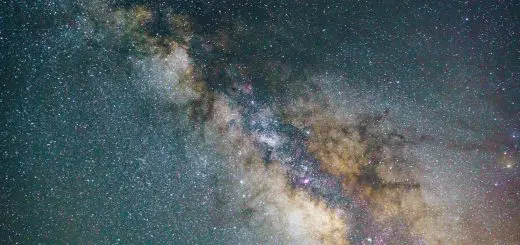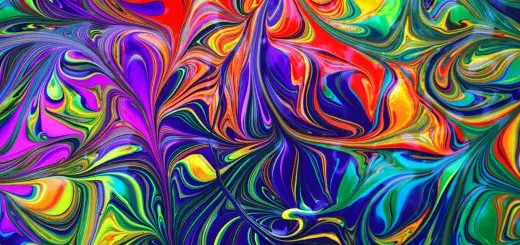The Influence of Hip-Hop Culture on Mainstream Media

Looking for more amazing products? Check out our online store and explore our collection here! Happy shopping!
Before diving in, please note: This post is for informational purposes only. If you’d like to know more about how we approach topics, feel free to check out our friendly Disclaimer Page.
Hey there, amazing readers! 
We’re committed to delivering quality posts, and your support (even just sticking around despite the ads) means everything to us. So, bear with us, and thanks for helping us keep the good vibes rolling. Now, on to the fun stuff!
TRANSLATE BUTTON AT THE END OF THE ARTICLE
Introduction: Hip-Hop Culture in the Mainstream Media
Hip-hop culture has undeniably made a significant impact on mainstream media over the past few decades.
What started as a subculture in the Bronx, New York, has now become a global phenomenon influencing various aspects of popular culture.
From music to fashion, movies, and even advertising, hip-hop has left its mark on the mainstream media in ways that were once unimaginable.
This article delves into the origins and evolution of hip-hop, its influence on fashion trends, music, movies, and TV, as well as its role in advertising and marketing.
We will also explore controversies surrounding hip-hop culture, its impact on language and slang, political and social commentary, challenges faced by hip-hop artists in mainstream media, and the future of hip-hop culture in the mainstream media landscape.
Origins and Evolution of Hip-Hop
Hip-hop originated in the 1970s in the Bronx, New York, as a form of expression for African American and Latino youth living in marginalized communities.
It encompassed various elements such as rapping, DJing, breakdancing, and graffiti art.
Over the years, hip-hop evolved from its humble beginnings in the streets to a global cultural movement that transcends boundaries of race, ethnicity, and nationality.
Today, hip-hop is not just a genre of music; it is a lifestyle and a powerful form of self-expression for many artists and fans around the world.
Hip-Hop’s Impact on Fashion Trends
One of the most visible ways in which hip-hop culture has influenced mainstream media is through fashion.
Hip-hop artists like Run-DMC, Tupac Shakur, and Notorious B.I.G. played a significant role in popularizing streetwear brands like Adidas, Timberland, and Versace.
Baggy jeans, oversized t-shirts, and gold chains became iconic symbols of hip-hop style in the 1990s.
Today, streetwear has become a dominant force in the fashion industry, with luxury brands collaborating with hip-hop artists to create limited-edition collections that blend high fashion with urban street style.
Influence of Hip-Hop Music on Pop Culture
Hip-hop music has had a profound impact on pop culture, influencing not only the music industry but also film, television, and advertising.
Artists like Jay-Z, Kanye West, and Drake have achieved mainstream success, with their music topping charts and winning prestigious awards.
Hip-hop has also inspired other genres of music, leading to collaborations between hip-hop artists and pop, rock, and electronic musicians.
The genre’s ability to adapt and evolve has allowed it to remain relevant in an ever-changing music landscape.
Representation of Hip-Hop in Movies and TV
Hip-hop culture has become a prominent feature in movies and television shows, with many films and series centered around hip-hop artists and the music industry.
From biopics like "Straight Outta Compton" to TV dramas like "Empire," hip-hop has provided rich storytelling material for filmmakers and TV producers.
Hip-hop artists have also ventured into acting, with stars like Ice Cube, Will Smith, and Queen Latifah successfully transitioning from music to the silver screen.
The representation of hip-hop in mainstream media has helped to humanize the culture and showcase its diversity and creativity.
Hip-Hop’s Role in Advertising and Marketing
Hip-hop culture’s influence extends beyond music and fashion into the realm of advertising and marketing.
Brands have long recognized the power of hip-hop to connect with diverse audiences and drive consumer engagement.
From using hip-hop songs in commercials to partnering with hip-hop artists for brand endorsements, companies have leveraged the cultural capital of hip-hop to enhance their brand image and reach new markets.
Hip-hop’s authenticity and street credibility have made it a valuable asset for marketers seeking to connect with youth culture and urban consumers.
Mainstream Media Embracing Hip-Hop Artists
In recent years, mainstream media outlets have embraced hip-hop artists and collaborated with them on various projects.
Hip-hop artists have appeared on mainstream talk shows, hosted award ceremonies, and even landed roles in blockbuster films.
Platforms like Spotify and Apple Music have also given hip-hop artists a global stage to showcase their music and reach millions of listeners worldwide.
The mainstream media’s recognition of hip-hop as a legitimate art form has helped to elevate the genre and its artists to new heights of success and visibility.
Controversies Surrounding Hip-Hop Culture
Despite its widespread popularity, hip-hop culture has not been immune to controversies and criticism.
The genre has often been criticized for its portrayal of violence, misogyny, and materialism in its lyrics and music videos.
Some artists have faced backlash for promoting negative stereotypes and glamorizing criminal behavior.
Additionally, hip-hop’s use of explicit language and provocative imagery has sparked debates about freedom of speech and artistic expression.
These controversies have forced the hip-hop community to confront difficult questions about the impact of its music on society and culture.
Hip-Hop’s Influence on Language and Slang
One of the most enduring legacies of hip-hop culture is its influence on language and slang.
Hip-hop artists have introduced new words, phrases, and expressions into mainstream vocabulary, shaping the way we communicate and interact with each other.
From "bling-bling" to "lit" to "flex," hip-hop slang has become a part of everyday language, transcending cultural and generational boundaries.
The use of hip-hop language in advertising, social media, and popular culture reflects the genre’s enduring impact on how we communicate and express ourselves in the modern world.
Political and Social Commentary in Hip-Hop
Hip-hop has always been a platform for political and social commentary, with artists using their music to address issues of racism, inequality, and injustice.
Artists like Public Enemy, Tupac Shakur, and Kendrick Lamar have used their lyrics to shed light on systemic issues facing marginalized communities and advocate for social change.
Hip-hop’s ability to provoke thought and challenge the status quo has made it a powerful tool for raising awareness and sparking meaningful conversations about pressing social and political issues.
The genre’s commitment to speaking truth to power has solidified its reputation as a voice for the voiceless.
Challenges Faced by Hip-Hop Artists in Mainstream Media
Despite its success and influence, hip-hop artists continue to face challenges in navigating the mainstream media landscape.
Many artists struggle to break into the industry and secure record deals due to systemic barriers and industry gatekeepers.
Others face criticism and backlash for their controversial lyrics and personas, leading to censorship and limited opportunities for exposure.
The lack of diversity in mainstream media platforms also poses challenges for hip-hop artists looking to reach wider audiences and gain recognition for their work.
These challenges highlight the ongoing need for greater representation and inclusivity in the mainstream media industry.
Conclusion: Future of Hip-Hop Culture in Mainstream Media
As hip-hop culture continues to evolve and expand, its influence on mainstream media shows no signs of slowing down.
From fashion trends to music, movies, and advertising, hip-hop has become a dominant force in popular culture, shaping the way we consume and engage with media.
While controversies and challenges persist, hip-hop remains a vital and dynamic art form that reflects the complexities and diversity of the modern world.
As mainstream media platforms continue to embrace hip-hop artists and narratives, the future of hip-hop culture in the mainstream media looks bright, promising new opportunities for creativity, expression, and collaboration.
Hip-hop’s journey from the streets of the Bronx to the global stage is a testament to its enduring power and relevance in the ever-changing landscape of popular culture.

The Enlightenment Journey is a remarkable collection of writings authored by a distinguished group of experts in the fields of spirituality, new age, and esoteric knowledge.
This anthology features a diverse assembly of well-experienced authors who bring their profound insights and credible perspectives to the forefront.
Each contributor possesses a wealth of knowledge and wisdom, making them authorities in their respective domains.
Together, they offer readers a transformative journey into the realms of spiritual growth, self-discovery, and esoteric enlightenment.
The Enlightenment Journey is a testament to the collective expertise of these luminaries, providing readers with a rich tapestry of ideas and information to illuminate their spiritual path.
Our Diverse Expertise
While our primary focus is on spirituality and esotericism, we are equally passionate about exploring a wide range of other topics and niches 

To ensure we provide the most accurate and valuable insights, we collaborate with trusted experts in their respective domains 
Our blog originally focused on spirituality and metaphysics, but we’ve since expanded to cover a wide range of niches. Don’t worry—we continue to publish a lot of articles on spirituality! Frequently visit our blog to explore our diverse content and stay tuned for more insightful reads.
Hey there, amazing reader! 
Check out our store here and take a peek at some of our featured products below! Thanks for being awesome!











